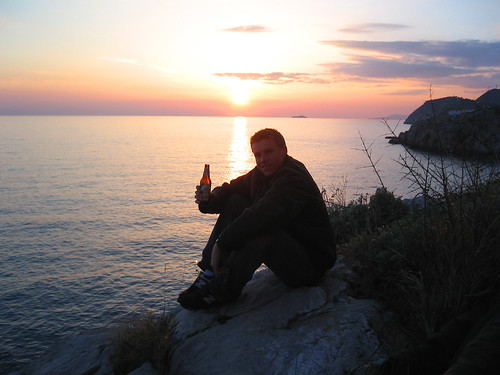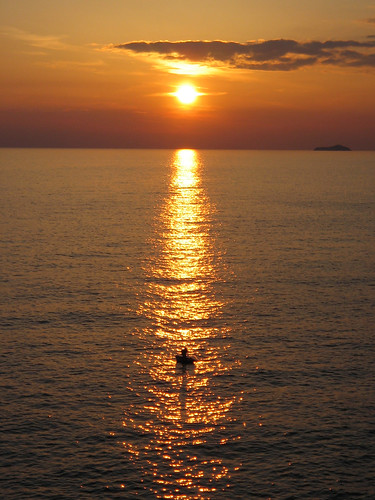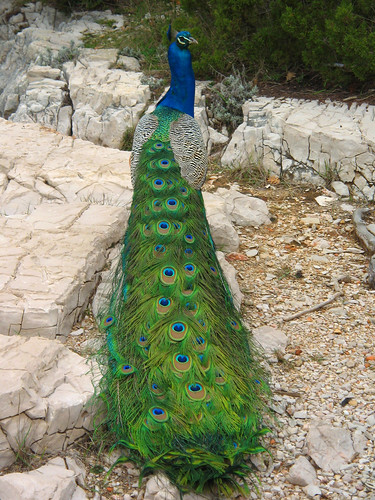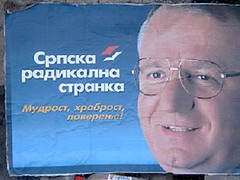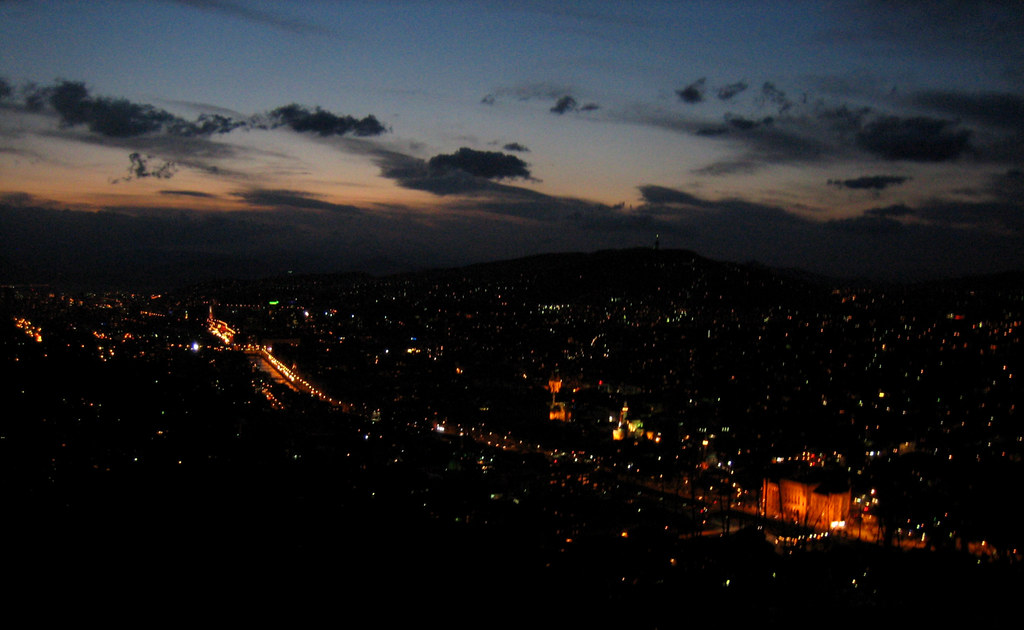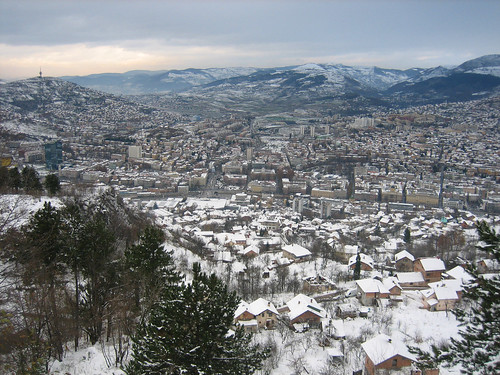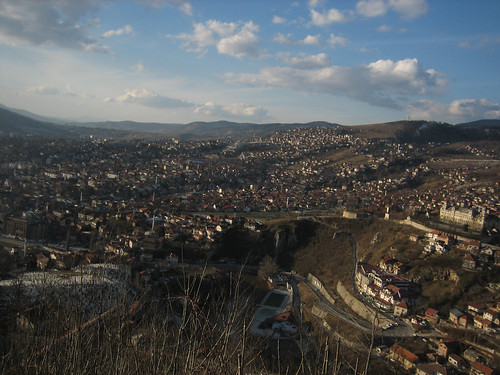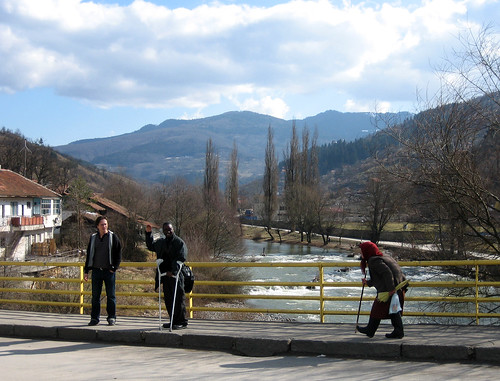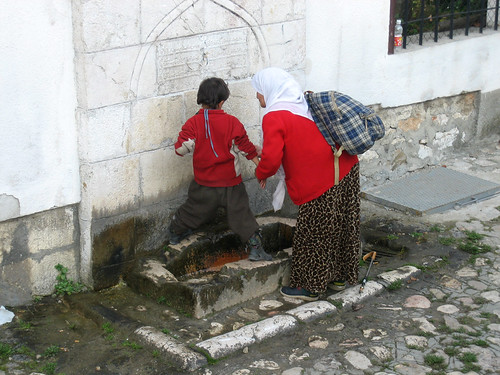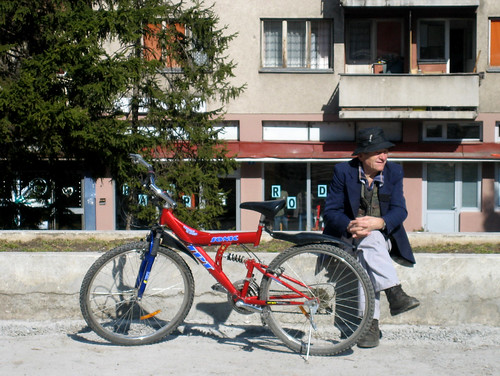Slobo's funeral happened Saturday with little controversy or fanfare. Although a throng of 80,000 showed up to honour the former tyrant, there were signs that times have changed. His wife was unable to attend, having been indicted for corruption by Serbian officials. More symbolically, the floppy-eared hero of a Greater Serbia was buried in his little backyard in the town of Pozaravec, having been refused a resting place in Belgrade's main cemetary.
But nevertheless, Milosevic's shadow remains long and dark. His death has brought to the fore the ugly undercurrent of hardline nationalism in the ex-Yugoslavia, a disease that no international idealism has been able to stamp out, one so persistent that it begs the question whether democracy imposed at international gunpoint can ever really succeed. It is not, as some journalists seem to imply, that Milosevic's croaking has plucked Serb nationalism from the grave -- anyone who has read this blog knows that I have often commented on the continuing influence of radicalism in the region. It is only that Slobo's death has given the utlra-nationalists a new soapbox, and while that is scary in itself, the effect will likely be temporary. The truly terrifying fact is this: 45% of Serbia voted for the Serbian Radical Party in 2004 (see post below).
It is unfair to point the finger solely at Serbia. For example, when the ruthless Croatian General Ante Gotovina was arrested in December on war crimes charges, tens of thousands of Croatians took to the streets in protest. More generally, the people of the Balkans are still haunted by despairing poverty, an infestation of crime and corruption, and in many places, a thirst for vengeance. Without a doubt, the wounds from 1992-1996 are still fresh. In Sarajevo and towns around Bosnia, the scars are tangible. Nary a Bosnian can spend a single day without walking by a bomb crater or a neighbour's demolished house. 10 years is but a scrap of breath in the scope of Balkan history.
I do not seriously believe that the region is close to war, even if the ultra-nationalists were to gain power. As long as there is a sustained international presence here, peace-building can continue to hobble along. But every day I spend here makes me realize how long, arduous and often seemingly impossible a task nation-building really is. The Balkans, referred to as one of the most succesful post-conflict stabilization programs ever, is often contrasted with the miserable failure of Iraq. There is much to be thankful for in post-war Yugoslavia, but it is far from recovered or being a fully stable region. One ugly, big-eared, 64 year-old man's heart attack has brought back all the old fears and reminded us of how fragile the peace really is. Potential conflicts still loom in Kosovo and Macedonia.
Given how long the road ahead is for the Balkans a decade after war, I would not be surprised if Iraq is still in utter chaos 10 years from now. Indeed, Iraq bears some scary resemblances to pre-war Yugoslavia. Namely, it is a geographically diverse nation inhabited by three distinct ethnic & religious groups who have for many decades had their identities supressed by secular dictators. Both collapsed into chaos and internecine warfare after the rigid authority structures that had held them together for so long suddenly crumbled away. With no sense of security, Iraqis, just like ex-Yugoslavs, are turning to the most base of comforts: their sense of ethnic belonging.
If only Bush had drawn a few lessons from the Balkans before eagerly strapping on his pistols and galloping away into the Persian Gulf. But it is too late now. After my experience here, I am not one who believes in a rapid withdrawal from Iraq. The bed has been made, and now we must lie in it. In a bout of refreshing honesty, a Canadian general recently estimated that Canadian troops should be in Afghanistan for at least a decade. If you ask me, America and Britain had better brace themselves for a very, very long commitment in old Mess-opotamia.
